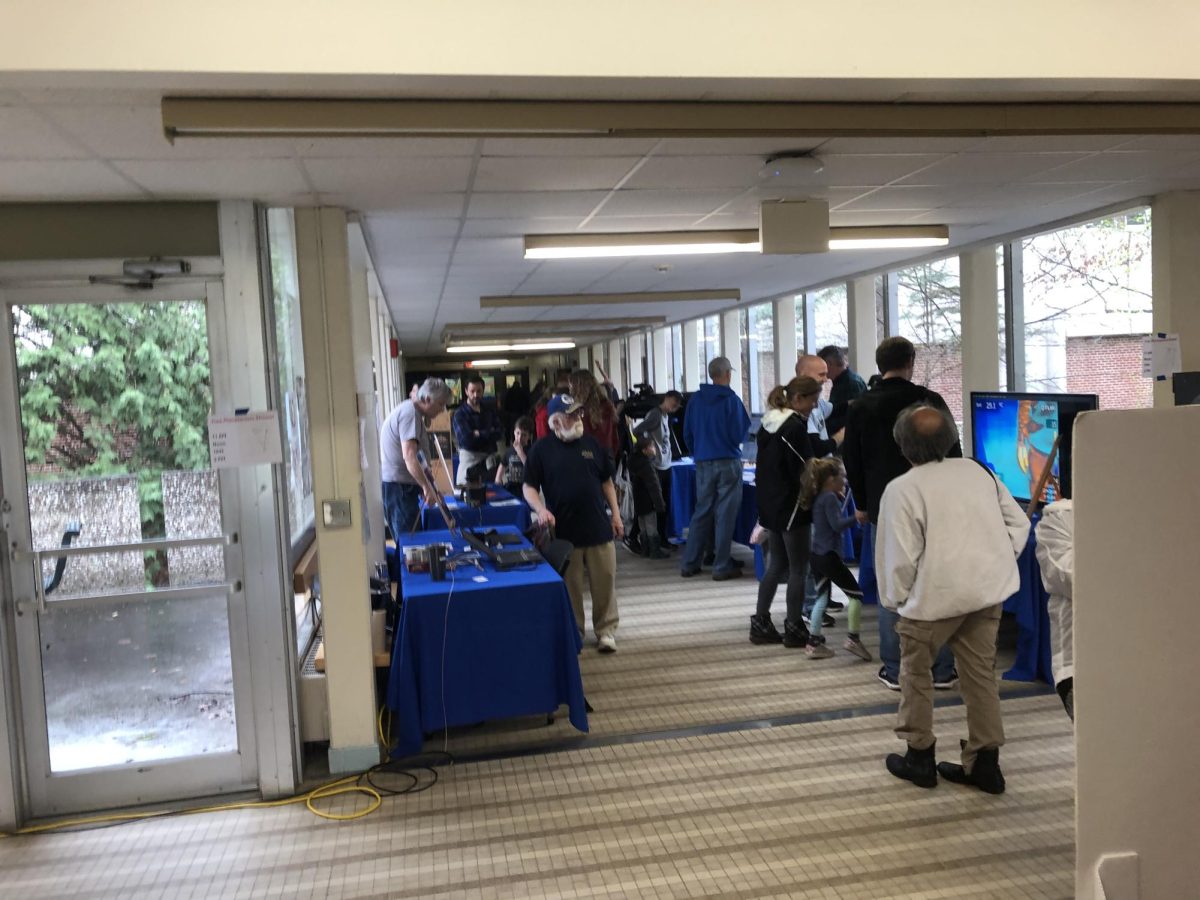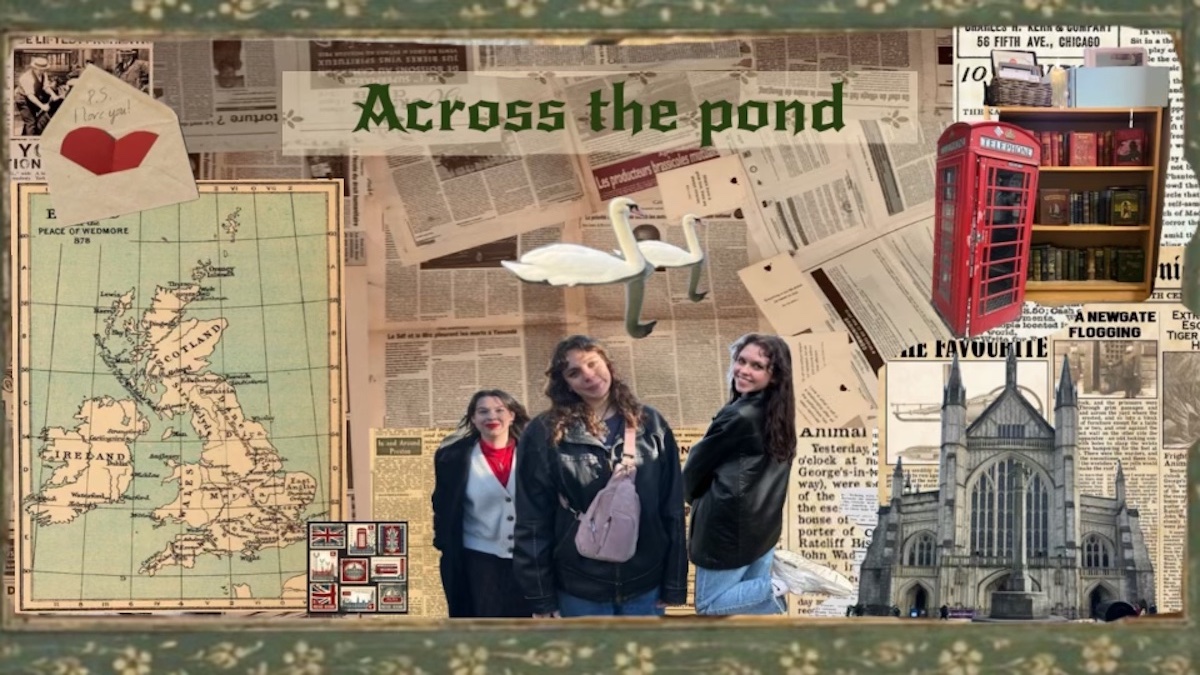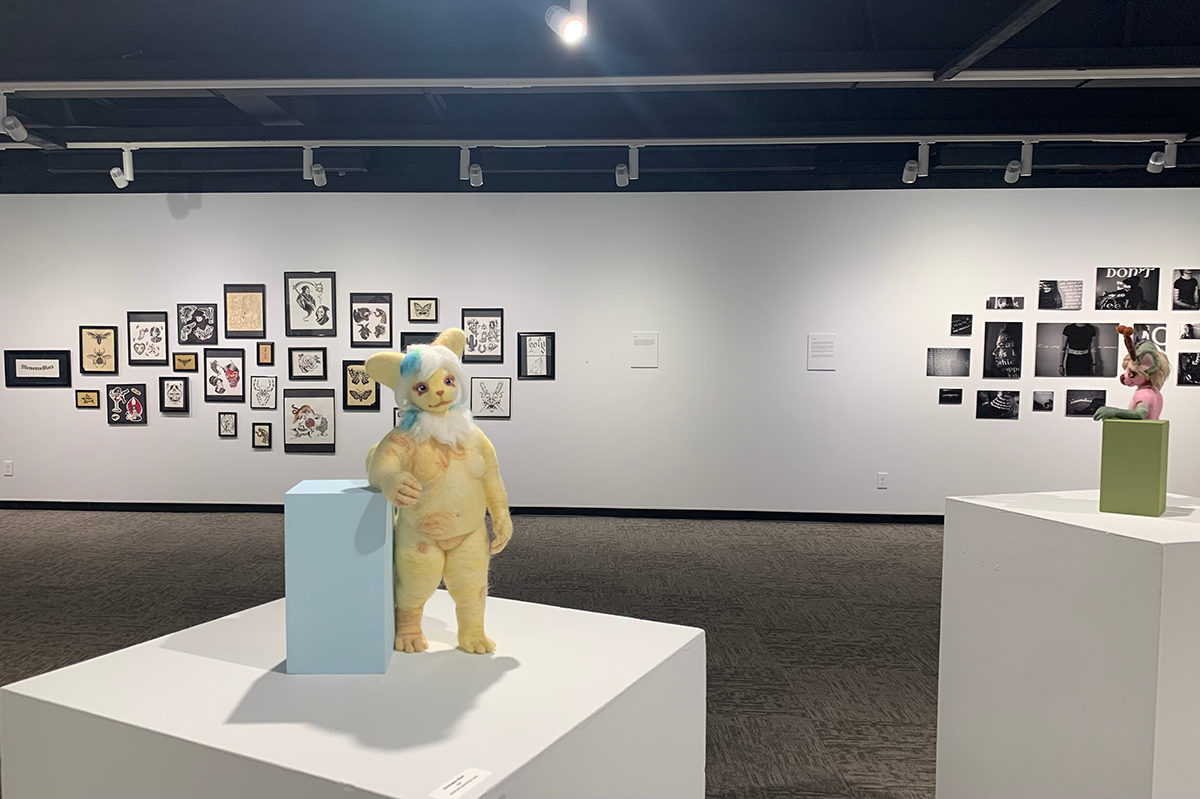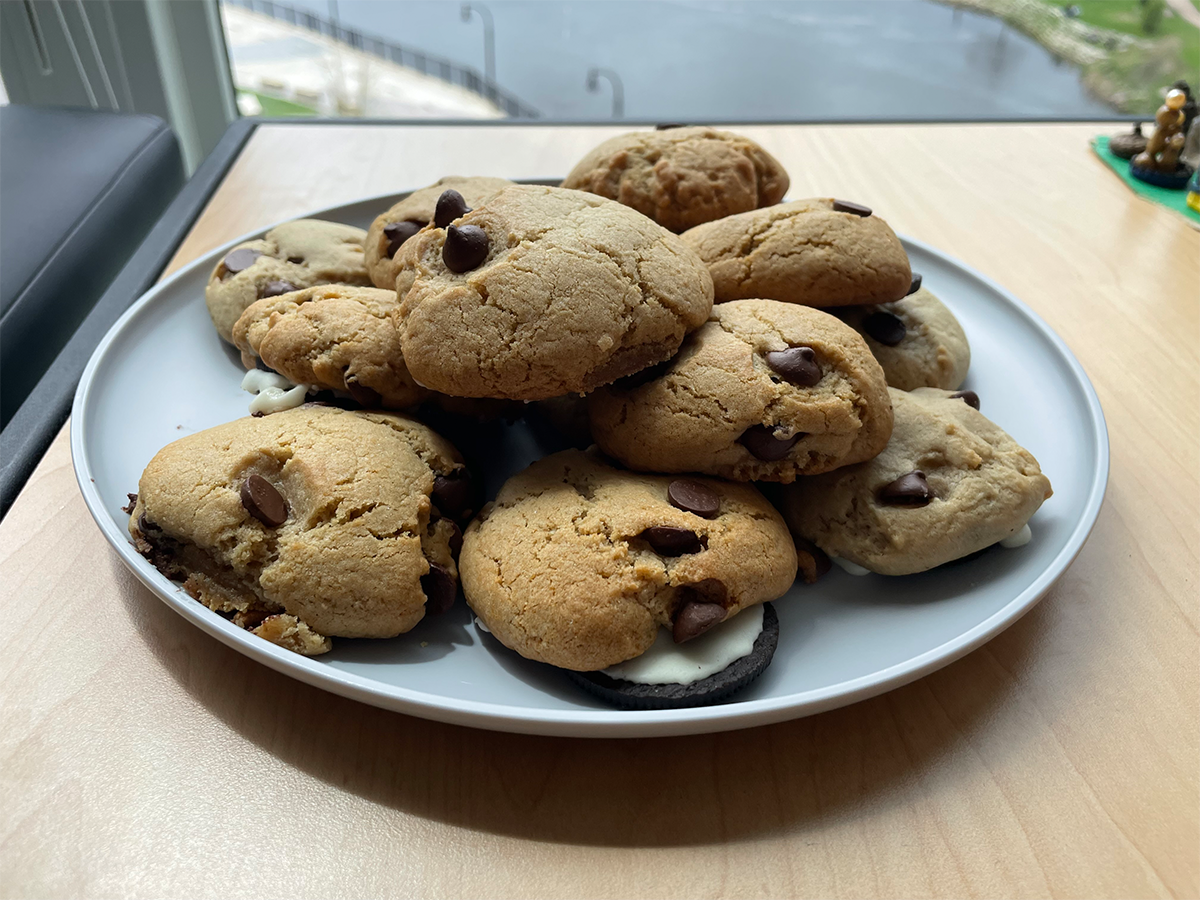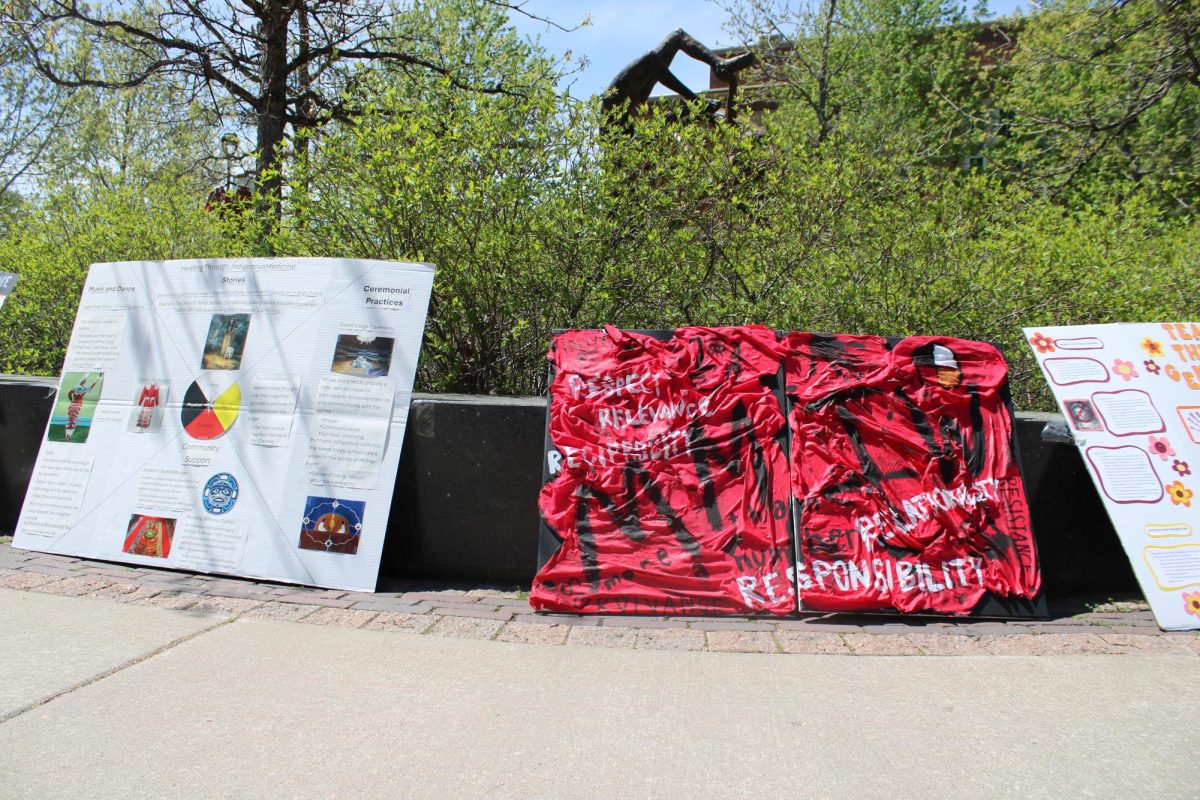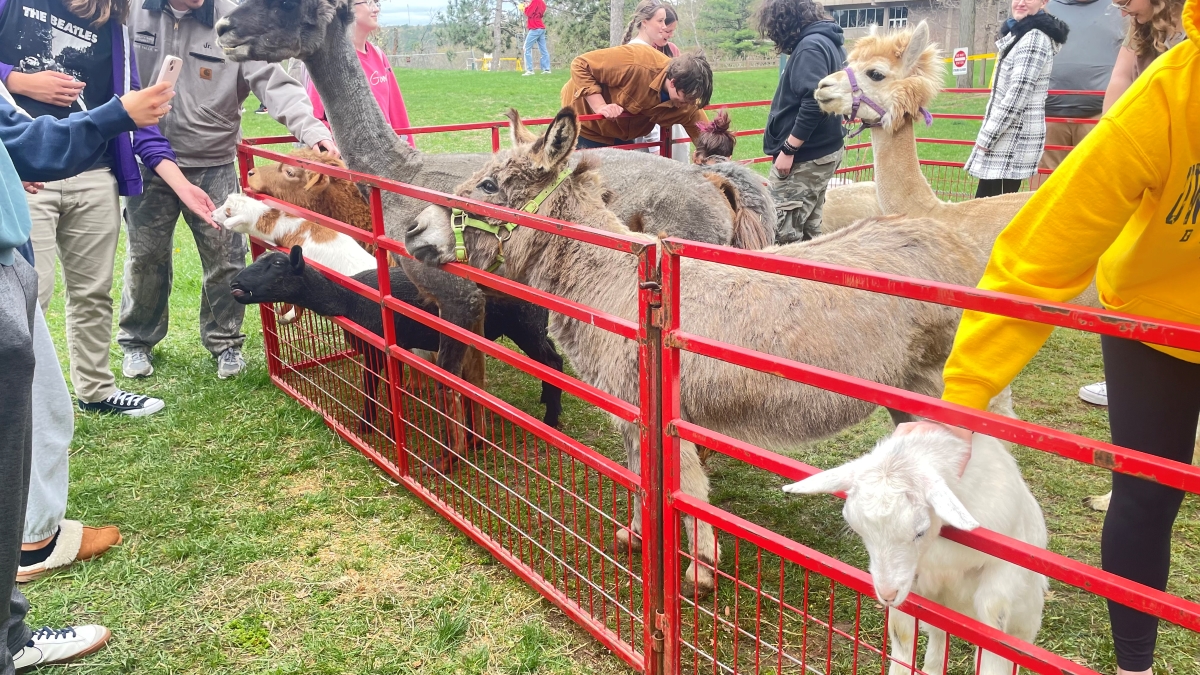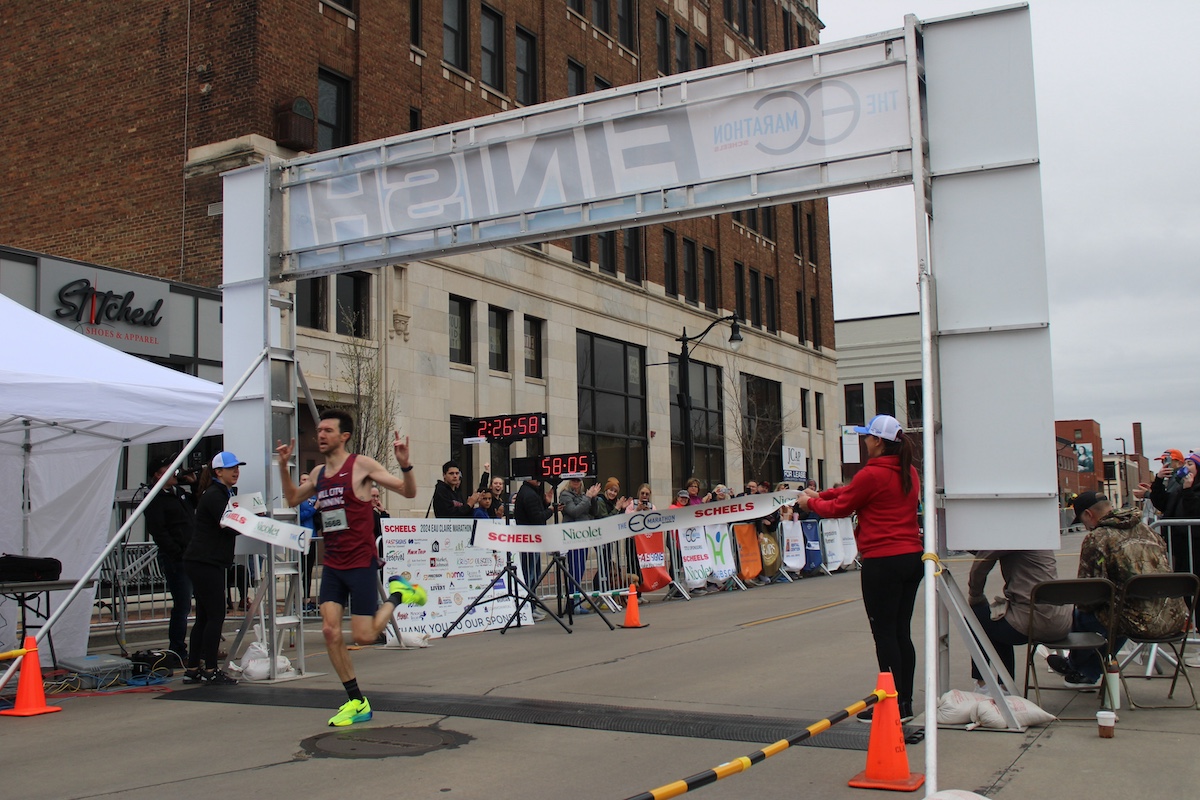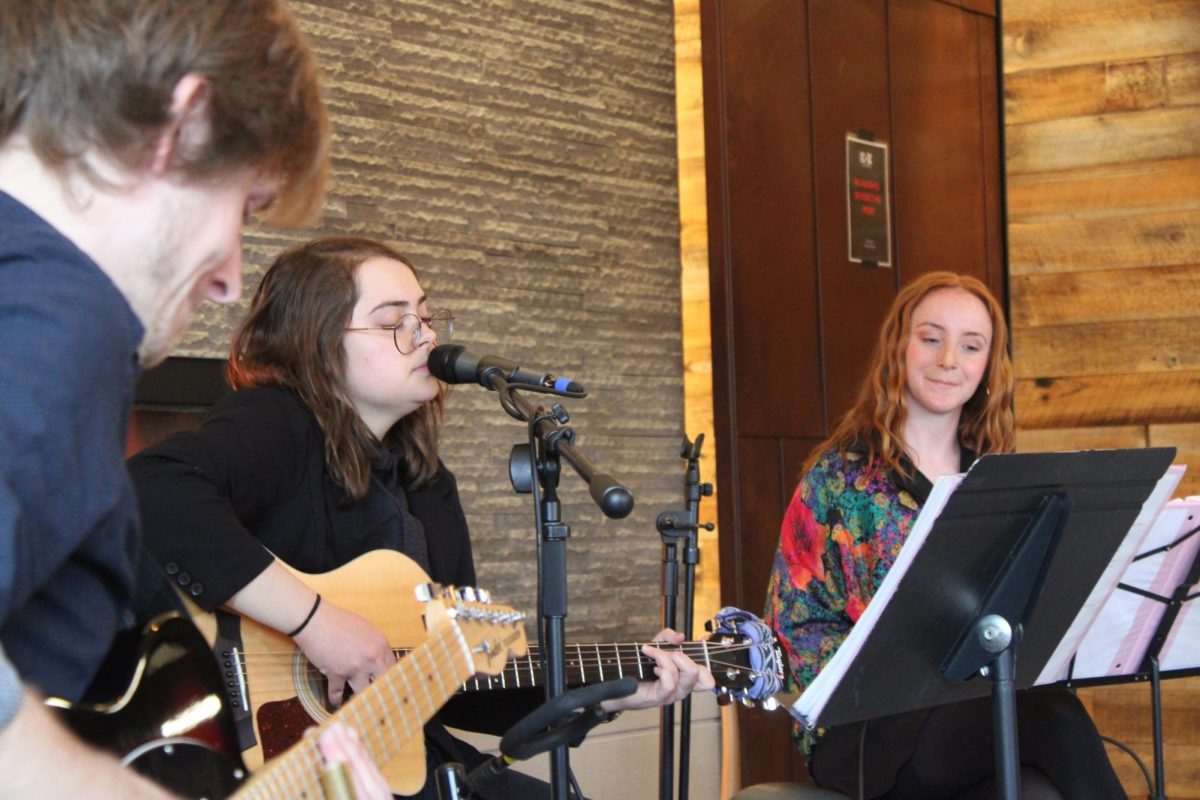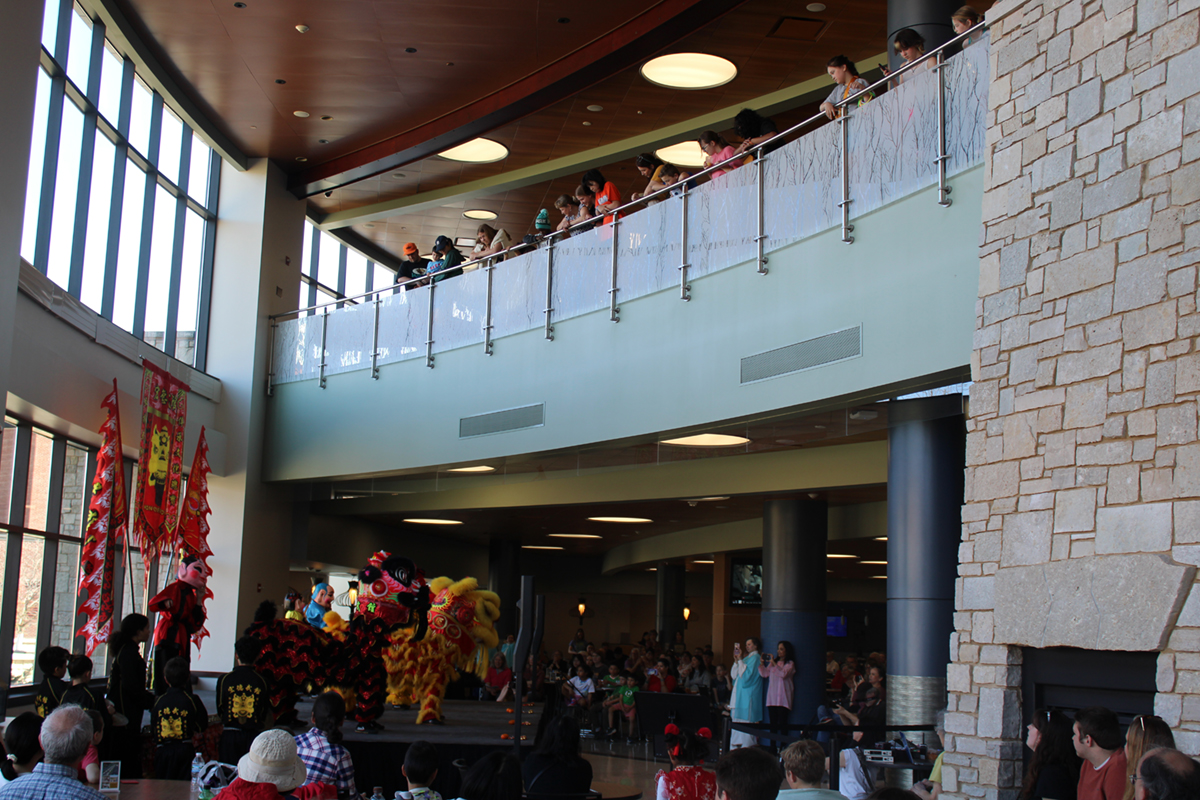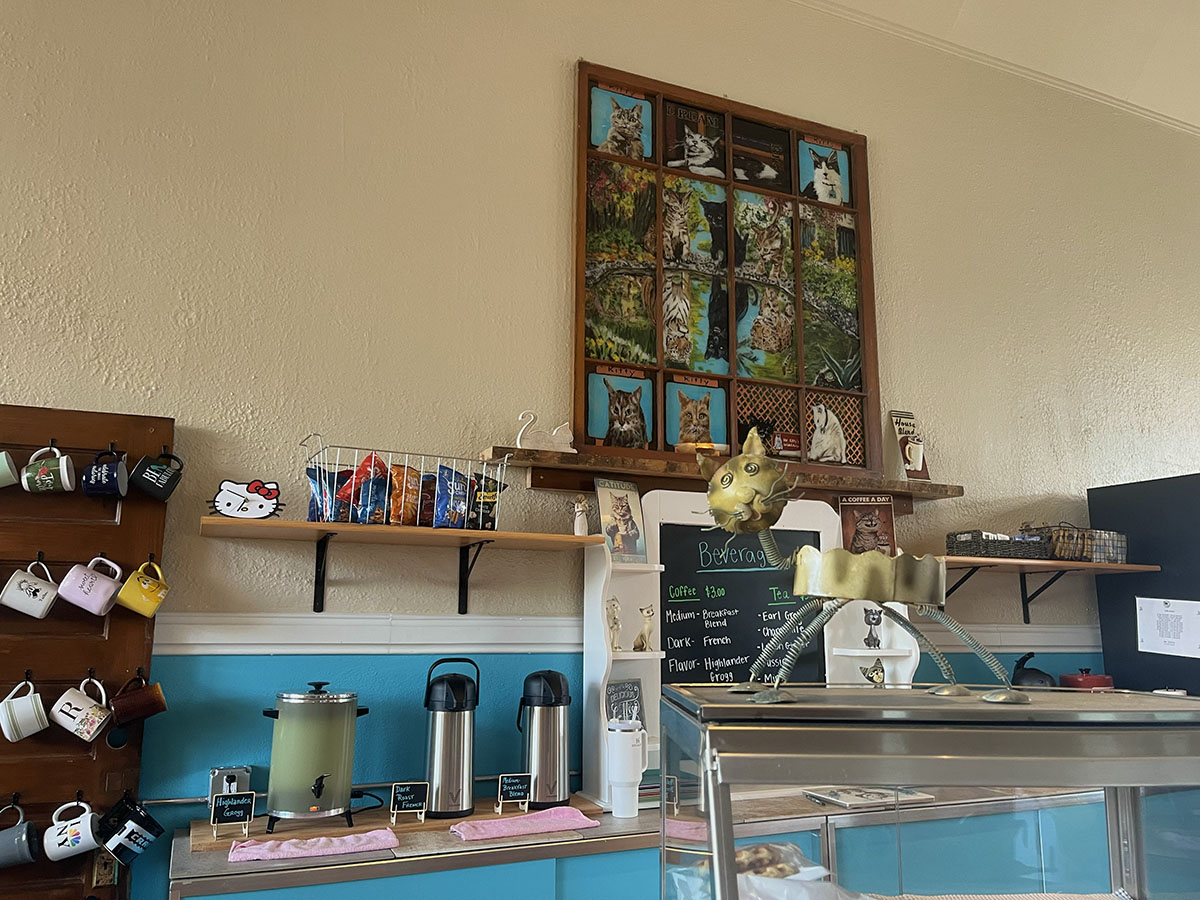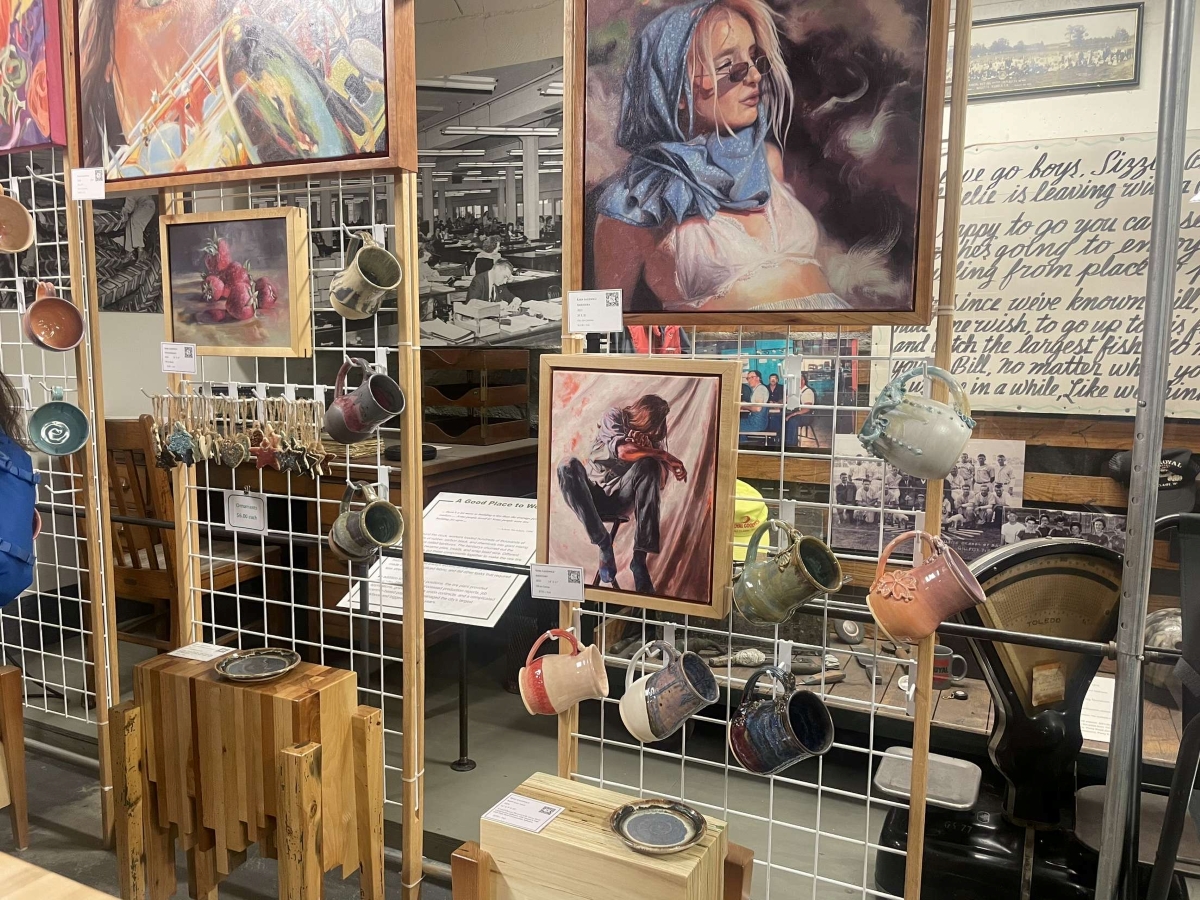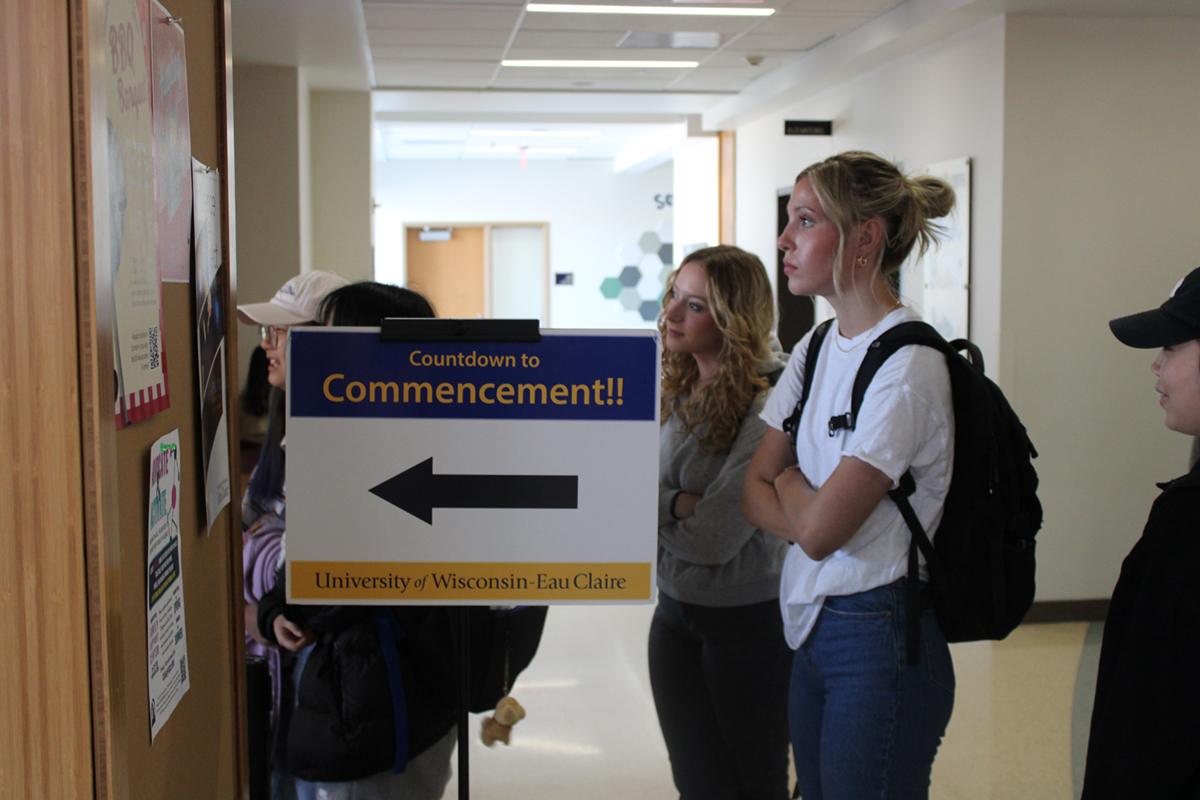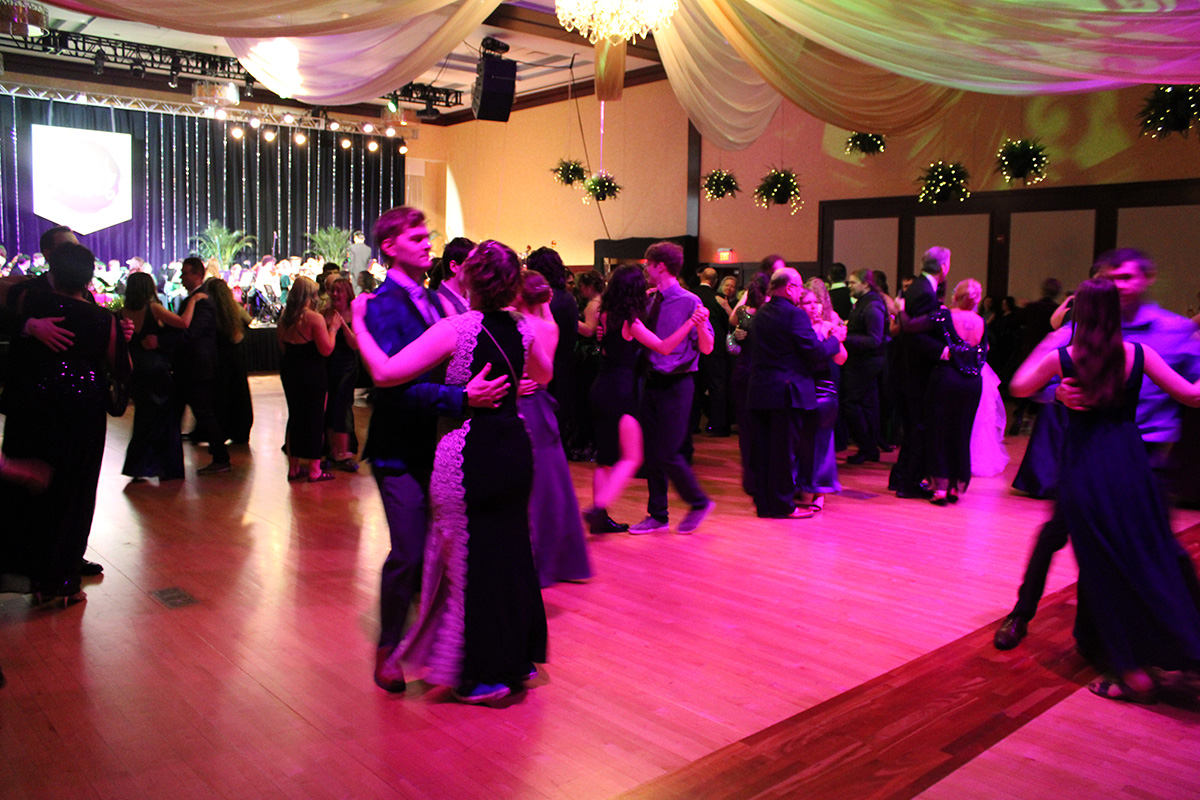The African Student Association (ASA) at UW-Eau Claire held its annual African Dinner at 5:30 p.m. on Saturday, Nov. 4 in the Ojibwe Ballroom. This year’s theme was Africa’s Future, named after the ideas behind Afrofuturism.
The night started with statements made by the ASA’s president Godwin Agbara, and the events co-hosts Mohamud Mohamed and Colin Niwagaba. The event then took an intermission to allow people to grab food.
The buffet of African foods consisted of two separate tables with dishes like jollof rice, sambosa, puff-puff and more.
Niwagaba said none of these foods can be pinpointed to any specific country since African foods and culture have spread throughout Africa and to other countries.
“We really just wanted to showcase all the different foods, cultures and art that should be put out more often in the world,” Niwagaba said.
He said he believes more discussion should be centered around how African culture has affected places all over the globe.
“We just really hope this reaches the right people, and not just the right people, anybody who has open ears and open mouths,” Niwagaba said.
After intermission, the event resumed with poetry readings from three different students. Next, the co-hosts announced a game of bingo.
However, due to having several winners and only three prizes, a dance contest was held to determine three winners with contestants of varying ages.
Following this event was an on-stage art showcase. One of the artists, Mary Alys Bednerek who had participated in the poetry reading, was present that night and had some of her art on display and for sale in the corner of the ballroom.
She had six pieces of artwork with her that night, one of which she discussed on stage and another she sold after the dinner.
According to Bednerek, one of her paintings was an interactive self-portrait with fake flowers attached to it sprayed with scented oil so people could interact with it and smell the flowers.
“The self-portrait was (made) during a time where I really was starting to embrace the uniqueness and the beautiness of being a black woman, but also learning about Black culture as well,” Bednerek said.
She said her identity as a Black woman is something that heavily influences her art. Bednerek’s art can be found on her Instagram and at the Haas Fine Arts Center.
The art showcase was followed by a performance by DOG PAULSON, of which Agbara is a member.
DOG PAULSON played three songs, the final of which was called “Honey,” and it is available to stream on Spotify.
The night ended with a fashion show where members of ASA represented African countries through their outfits.
Mohamed represented Nigeria, Niwagaba represented his mother’s birthplace, Uganda, and Bednerek represented African Americans.
Bednerek explained that her outfit was inspired by African Boho, which she paired with handmade and traditional African jewelry.
Many other countries such as Ethiopia, Belize, Cameroon and more were represented that night.
Next school year, Niwagaba said he will take over as the president of the ASA. His goal is to make ASA bigger and welcome more new members.
Niwagaba is a new member and a first-year student. Mohamed said he joined after receiving an injury that prevented him from playing football this season, but didn’t prevent him from joining a student organization. He compared being in the ASA to being a part of a family.
“Once our freshmen coming in meet one of us, they can feel like family too,” Mohamed said.
Bednerek said she too has been helped by ASA, and it has allowed her to contradict the stereotypes that were forced upon her in her early education, such as the stereotype that she was unworthy of a proper education.
“ASA has showed me so much of the beauty of being a Black woman and it’s shown me the fight against the traditional norms that people try to put on you,” Bednerek said.
Liz Curtin can be reached at [email protected].



